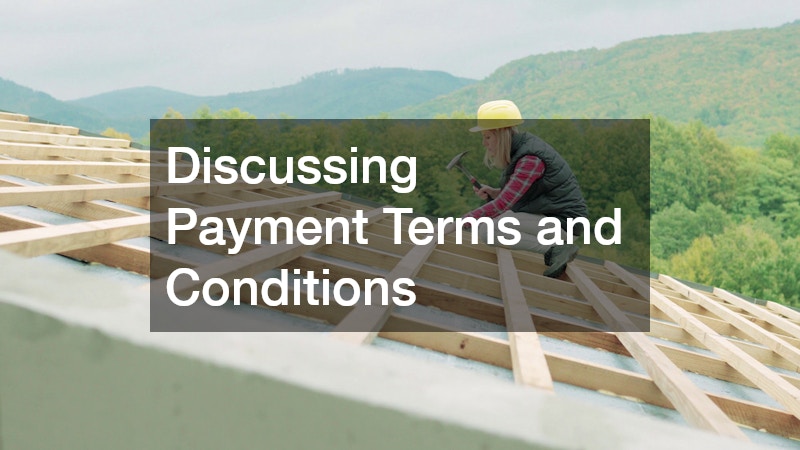Understanding what’s involved in a roof estimate is crucial when planning for a roofing project. A clear and comprehensive roof estimate can help homeowners avoid unforeseen expenses and confusion during the project. This guide will delve into the key components of a roof estimate, providing clarity and insight for homeowners.
What a Typical Roof Estimate Includes
Materials and Labor Costs
A typical roof estimate will provide a breakdown of materials and labor costs, as these are significant contributors to the overall price. It is essential to understand the type and quality of materials that will be used, as they will affect the durability and lifespan of the roof. Labor costs vary depending on the complexity of the roof design and the contractor’s expertise.
Homeowners should request a detailed list of materials to ensure they match their expectations for quality. Quality materials, such as high-grade shingles or tiles, might cost more initially but can offer long-term savings through durability. Additionally, labor costs might include both the physical installation of the roof and the removal of old roofing materials.
Understanding these costs upfront allows homeowners to budget more accurately for their roofing projects. It’s important to seek estimates from multiple contractors to compare material and labor costs. Furthermore, ensuring clear communication about these costs reduces the likelihood of misunderstandings or unexpected expenses.
Timeline and Project Scope
A roof estimate should also indicate the timeline required to complete the roofing project. This timeline will depend on various factors, such as the roof’s size, the materials used, and the weather conditions. A realistic timeline helps homeowners plan their schedules and minimizes disruptions to their daily lives.
In addition to the timeline, the estimate should outline the project scope, which describes the work that will be performed. This includes any preparatory work, such as removing existing roofing materials, repairing structural damage, or installing new underlayment. Understanding the full scope of work ensures there are no surprises and that all necessary tasks will be completed.
Clear communication about the project scope provides a foundation for a successful roofing project. Homeowners should verify that the scope includes any specific requests or particular needs they have discussed with the contractor. Moreover, a comprehensive scope of work helps avoid disputes or misunderstandings about the contractor’s responsibilities.
Comparing Different Roofing Estimates
Analyzing Cost Differences
When comparing different roofing estimates, homeowners should pay attention to cost differences and what they signify. Variations in estimates can stem from differing material choices, labor rates, or the contractor’s experience and reputation. Understanding why prices may differ between contractors can aid homeowners in making informed decisions.
It is crucial to compare apples-to-apples when assessing estimates to ensure each contractor is providing a quote for similar materials and services. Some contractors might offer cheaper estimates by opting for lower-quality materials, which could affect the long-term performance of the roof. Asking for itemized estimates can help clarify these distinctions.
Homeowners should also consider the long-term implications of cost-saving measures. While an initially cheaper estimate may seem appealing, it could lead to higher maintenance costs in the future. Ensuring the quote aligns with quality expectations and offers good value is key to a successful investment.
Evaluating Contractor Credentials
Evaluating a contractor’s credentials is an essential step in comparing roofing estimates. Checking reviews, licenses, and insurance helps ensure that homeowners are working with trustworthy and competent professionals. A contractor with a solid reputation and necessary credentials is likely to deliver quality work and honor warranties.
Homeowners should verify that contractors are licensed to work in their area, as this ensures compliance with local building codes and regulations. Insurance is equally important, as it protects both the homeowner and the contractor in the event of accidents or damages. Reading reviews or requesting references provides additional insights into the contractor’s reliability and past performance.
Questions You Should Ask a Roofing Contractor
Inquiring About Warranties and Guarantees
When considering a roofing estimate, it is vital for homeowners to ask contractors about warranties and guarantees. Different components of a roof, such as materials and workmanship, may have separate warranties with varying terms. Clarifying these details ensures that homeowners know what is covered in case issues arise post-installation.
Contractors should provide information about the duration and specifics of warranties on materials like shingles or tiles, as well as the labor involved in installation. Some manufacturers offer extended warranties when the roofing system is installed by certified contractors. Inquiring about these options can enhance the long-term assurance a roof provides.
Discussing Payment Terms and Conditions
In addition to warranties, it is important to discuss payment terms and conditions outlined in a roofing estimate. Understanding the payment schedule and any required deposits ensures that homeowners can plan financially for the project. Clear financial agreements prevent potential disputes and misunderstandings down the line.
Homeowners should inquire about accepted payment methods, as some contractors offer flexibility to accommodate preferences. It’s also advisable to confirm any penalties or fees related to early or late payments. Transparency in these aspects reinforces trust between the homeowner and contractor.
Grasping the core elements of a roof estimate can empower homeowners to make informed decisions and ensure a successful roofing project. By knowing what questions to ask and how to evaluate estimates, homeowners can confidently navigate the process. Preparedness and due diligence help secure a high-quality roof that meets both functional and aesthetic needs.

